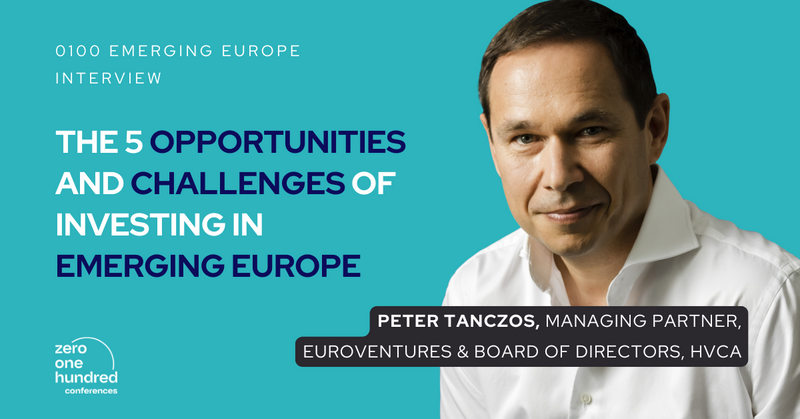
As global VC and growth-stage investors look beyond saturated markets, Emerging Europe is increasingly in the spotlight. In this article, Peter Tanczos, Managing Partner at Euroventures, and Board of Directors member at HVCA, outlines five compelling opportunities—and five real challenges—that define this high-potential but complex region. From world-class technical talent and capital efficiency to regulatory hurdles and fragmented markets, this is a must-read guide for investors navigating one of Europe’s most dynamic frontiers.
Five Opportunities Driving Investment in Emerging Europe
1. Deep Pool of Technical Talent
Emerging Europe boasts an extraordinary concentration of highly skilled engineers, developers, and data scientists. With strong STEM education systems and a culture that values problem-solving, the region offers investors access to world-class technical teams at competitive costs.
2. Innovation Born from Constraints
Scarcity often breeds creativity. In a region historically underfunded in innovation, entrepreneurs have learned to deliver competitive solutions with fewer resources—a crucial skill in today’s increasingly capital-efficient startup environment.
3. Entrepreneurial Ambition and Hunger for Success
Unlike in some more mature ecosystems where startup culture has shifted toward lifestyle businesses, founders in Emerging Europe are often driven by deep ambition and a real hunger for transformative success, making them especially resilient and growth-focused.
4. Cost-Effectiveness and Operational Efficiency
Startups in the region maintain leaner operations, offering better capital efficiency and longer runways per invested dollar compared to many Western counterparts. This advantage can significantly extend a startup's survival and growth prospects.
5. Global Orientation from Day One
Because domestic markets are small, Emerging European founders naturally design products with global scalability in mind, particularly in sectors like SaaS, cybersecurity, and deep tech. This mindset positions them to capture international markets earlier in their lifecycle.
Five Challenges Investors Must Navigate in Emerging Europe
1. Fragmented Markets
Emerging Europe is not a single, unified market. Investors must navigate a patchwork of languages, legal frameworks, and cultural nuances—making regional scale-ups more complex and requiring tailored go-to-market strategies.
2. Regulatory Complexity
Sector-specific regulations, particularly in fintech, healthtech, and data privacy, vary greatly by country. Building scalable business models across the region requires carefully navigating compliance challenges market-by-market.
3. Lack of Sales and Marketing Expertise
While technical talent is abundant, many startups lack senior sales and marketing leaders with global scaling experience. Bridging the gap between great product development and effective commercialization remains a common hurdle.
4. Limited Local Capital at Growth Stages
Seed capital is increasingly available, but many startups struggle to raise Series B and beyond domestically. As a result, founders often seek international investors earlier, creating funding gaps that can slow or stall promising ventures.
5. Need for Local Networks and Insights
Successfully investing in Emerging Europe requires more than capital—it demands deep local understanding. Having trusted partners, advisors, or co-investors on the ground can make the difference between success and costly missteps.
Peter Tanczos will join us at the upcoming 0100 Emerging Europe Conference, taking place from May 14–16. Together with other industry leaders, he will explore the region’s growing appeal for investors who approach it with the right mindset: patient, well-connected, and ready to navigate complexity. With its deep technical talent, global outlook, and cost advantages, Emerging Europe is poised to become a powerful engine of innovation in the decade ahead—provided investors understand how to engage with its unique dynamics.

